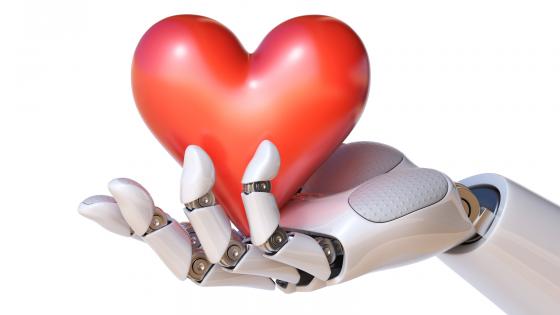 Although much progress has been seen in the treatment of heart and circulatory diseases, it is estimated that over 18 million people worldwide die from these diseases each year. This is further compounded by the record levels of risk factors like diabetes and obesity, and by 2030, the World Health Organization predicts that the number of deaths could rise to over 23 million.
Although much progress has been seen in the treatment of heart and circulatory diseases, it is estimated that over 18 million people worldwide die from these diseases each year. This is further compounded by the record levels of risk factors like diabetes and obesity, and by 2030, the World Health Organization predicts that the number of deaths could rise to over 23 million.
With the aim of accelerating research and breakthroughs in this field, the British Heart Foundation’s “The Big Beat Challenge” asked teams of top multi-disciplinary scientists to “identify and propose a transformational solution to a significant problem in any heart or circulatory disease”. Outline applications were assessed by its International Advisory Panel
(IAP) to select the most promising proposals, who were then given seed funding to develop their ideas more fully, before sending in a full application.
The criteria for selection consisted of six major parameters: whether the structures were appropriate enough to provide an innovative framework towards successful delivery; whether the team was confident enough to provide results, based on its expertise, resources, and track record; whether the proposal sought to address a specific area of unmet need; whether the team could demonstrate that it really needed the funding for delivery of the project; and whether the team was highly collaborative, with knowledge, skills, and resources from multiple disciplines and sectors. After due process, four international teams have now been invited to submit full applications.
Hybrid Heart
Led by Professor Jolanda Kluin at the University of Amsterdam, Netherlands, the team plans on developing a soft robotic heart consisting of a soft robotic shell and artificial muscles, besides sensors to enable natural motion, and tissue-engineered lining to ensure that all surfaces in contact with blood are safe. The energy transfer will be wireless. The hybrid heart, if successful, could replace the need for heart transplantation.
iMap
Led by Professor Ziad Mallat at the University of Cambridge, UK, a team of researchers is using cutting-edge technologies and human data to develop iMaP, a detailed map of atherosclerotic plaques, so as to understand them better. This could enable immunotherapy treatments to be targeted at specific sites to combat atherosclerosis, and potentially lead to new kinds of drugs and vaccines that may prevent heart attacks and strokes.
ECHOES
Led by Professor Frank Rademakers at KU Leuven, Belgium, a team of scientists are working to develop wearable technology, named ECHOES, for daily-life use, which will capture much more data than before, ranging from physical activity and air quality to symptoms and heart function. Such information could be used along with other healthcare and genetic data to bring about a big transformation in diagnosis, as well as the monitoring and treatment of heart and circulatory diseases.
CureHeart
Led by Professor Hugh Watkins at the University of Oxford, UK, a team of researchers are trying to develop a treatment called CureHeart that targets the faulty genes responsible for diseases of the heart muscle (cardiomyopathies) that can lead to heart failure or sudden death at an early age. By combining deep understanding of the underlying gene mechanisms with the latest technologies, the team aims to stop progression of damage due to genetic heart muscle diseases, and even stop it before it begins.
 Medicosnext
Medicosnext




